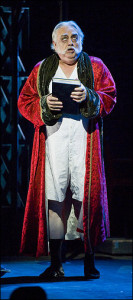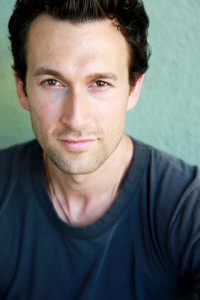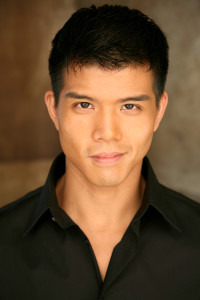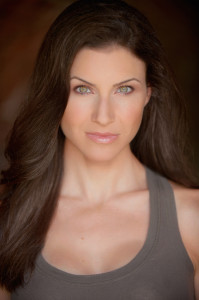Apparently everyone is an expert at which audition songs will land a performer a job and which should be avoided. For a variety of reasons, many stage, music and casting directors advise being wary of songs by Stephen Sondheim for auditions.

“It’s just too dangerous,” says veteran actor Ed Dixon, who’s also a busy playwright, composer and lyricist. “It’s impossible to take the focus from him, so even if you do a Sondheim song successfully they say , ‘Oh, God, Sondheim. He’s so brilliant.'” Dixon, who coaches young singers, advises actors called on to prepare a Sondheim song (often the case for a Sondheim show): “Use an early work like ‘Love, I Hear’ or perhaps ‘Pretty Women,’ where the accompaniment patterns and tempos make it more facile for singer and audition pianist.”
Dixon, who played Mr. in the 2008 Roundabout Theatre Company revival of Sunday in the Park with George, didn’t sing a Sondheim song when he auditioned for the original production of Passion. “I’d been told it was a comedy,” he chuckles. When he began to sing, from the back of the theatre Sondheim yelled out, “No comedy!” However, when he came in for Sunday with “Gonna Be Another Hot Day” from 110 in the Shade, it all worked out.

Aaron Lazar, who played Count Carl-Magnus in the 2009 revival of A Little Night Music, doesn’t usually audition with a Sondheim piece unless requested. “Many times the songs are difficult to play without prior rehearsal,” he explains. “When I have auditioned with a Sondheim song, the preparation takes longer because the songs are more complex lyrically and melodically.”
In fact, many performers apply preparation techniques for Shakespearean roles to analyze and make acting choices for Sondheim. “His characters are richly detailed,” comments music director Miles Mandwelle, “so you can’t just sing. It’s not nearly enough.” Lazar agrees that it’s comparable to preparing a monologue by Shakespeare, noting that it’s challenging, but ultimately artistically satisfying.
Lazar pulled out the exquisite “Is This What You Call Love?” from Passion to present at an audition for an early workshop of Andrew Lloyd Webber’s Love Never Dies. “The script describes Raoul as an angry drunk,” Lazar says, “and I thought Sondheim would be an appropriate, if unexpected choice.” He landed the job. He took the opposite course with Night Music, bringing in a reworked version of Cole Porter’s “Where Is the Life That Late I Led” (Kiss Me Kate) with lyrics describing a narcissistic baritone complaining about the state of the art. The production’s director, Trevor Nunn, loved it.
Many music directors warn about complex accompaniments that might challenge audition pianists, as well as the amount of nuance required which, according to conductor Sarah Brett England, “typically takes more time to communicate between singer and accompanist than can be allotted during an audition.” Even the most astute accompanists can have difficulty negotiating an unfamiliar Sondheim song and, if the accompanist messes up, the performer looks bad. England agrees she would be totally thrown if someone brought in a complex section from Passion or Pacific Overtures.
But Enlgand offers a handful of songs that many performers, coaches, pianists and directors believe are safe choices because the accompaniment drives them: “Giants in the Sky,” “Lovely” and “What More Do I Need?” She explains, “The pianist can maintain time and not worry about having to chase the singer.” Obviously it would be suicidal to sing a song like “Getting Married Today,” Color and Light” or “The Worst Pies in London” unless specifically requested.
Tony nominee Mary Testa doesn’t normally use Sondheim songs because they are often difficult for an accompanist, especially with a transposition and “because people might get nervous about interpretation in an audition setting.” Testa, who played the alpha-wife Domina in the Jerry Zaks-directed revival of A Funny Thing Happened on the Way to the Forum, didn’t use a Sondheim Song for that audition, “But I did have a work session with Mr. S. on ‘That Dirty Old Man.’ He was very definite about what he wanted. And very helpful.”
Anika Larsen, co-starring in Beautiful: The Carole King Musical (which began previews at the Stephen Sondheim Theatre in November 2013 and opens in January 2014) has been using “The Miller’s Son” at auditions for years. “Only the first verse,” she concedes. “I’d have difficulty getting the whole song out without real rehearsal and blocking.” It’s a song she has always admired because Sondheim manages to match verbal gymnastic magic with real feeling, insight and truth. “But that sucker is a challenge,” she admits. Though she wouldn’t ever pull out this excerpt for an audition she can’t shake the desire to play Dot, just to sing the lyric from “We Do Not Belong Together”: “No one is you and/No one can be,/But no one is me, George,/No one is me!”

Telly Leung, who appeared in Roundabout’s 2004 production of Pacific Overtures, was asked to bring in a Sondheim song so he chose “Being Alive.” He says it was a nerve-wracking experience to sing for frequent Sondheim music director Paul Gemignani. Leung had used the song before when he auditioned for the 2002 Broadway revival of Flower Drum Song. “I was a college student at Carnegie Mellon when Billy Porter came back to his alma mater to direct me as Bobby in Company.” Leung, who plays Wes on television’s Glee, says, “When director Bobby Longbottom found out I had just come off the bus, literally, from college and performed in Company, he asked me to sing ‘Being Alive,’ something that was very much in my voice and body.” Leung explains that he tries to find what he calls “the Telly in the song.” That helps him understand what the song is really about so he can make a connection to it.

“Being Alive” is also the go-to Sondheim song both for versatile actors Max von Essen and power-belter Jenny Powers. She appeared as Young Phyllis in the Encores! Follies and, like Leung, right out of college landed in the world premiere of Bounce in Chicago and later at the Kennedy Center. Her version of “Being Alive” is transposed for the female voice, so accompanists are forewarned.
Von Essen, who has appeared in principal roles in a handful of Broadway musical, says, “I rarely use Sondheim at auditions. As much as i love singing his work, I try to bring in material that I know the pianist and I will be able to soar on, without prior rehearsal.” But he goes on to say he has used “Being Alive” and “Johanna” for a few auditions. “I pay close attention to what Sondheim has written,” he explains. “There are subtle changes in notes and lyrics. These are not arbitrary. They are important, and if Sondheim has written them, they must be honored.” Von Essen appears in the witty online YouTube series Submissions Only, which contains a number of funny vignettes that portray audition mishaps.
Casing agents are smart to impart wisdom about the best audition material. Tony Freeman, who frequently works for Jay Binder Casting, observes that most actors don’t risk doing a Sondheim song. Freeman, who is currently playing Zazu in Broadway’s The Lion King, rarely uses Sondheim at an audition. Dirctor/choreographer and former casting agent Joe Langworth cast the John Doyle revival of Company in 2006 for Telsey + Company. He found himself having to “listen to actors who needed to sing and act a Sondheim song successfully and demonstrate proficiency playing a musical instrument at the same time.” Sometimes it was quite amusing: “An actor would be playing a wind or brass instrument. Sing a few bars. Play a few notes. And then continue singing.” Langworth, who was in the 2001 Roundabout staging of Follies, pulled out West Side Story‘s “Something’s Coming” early on to land his first professional job and his Actors’ Equity card straight out of college.
Two-time Tony nominee Laura Osnes says “The only Sondheim song I ever had in my book was ‘So Many People’ from Marry Me a Little [and written for Saturday Night], but I don’t even recall using it at an audition.” She has sung Sondheim songs in concert, including with Paolo Szot for his cabaret debut at New York City’s 54 Below where they performed “Too Many Mornings.” She appeared in Six by Sondheim but she has yet to do a Sondheim show. She auditioned Rapunzel for the upcoming film version of Into the Woods, and she was asked to sing “On the Steps of the Palace” for the Public Theatre/New York Shakespeare Festival’s 2012 Into the Woods. She didn’t get that Cinderella. But she did land the other – the one created by Rodgers and Hammerstein. Unlike Lapine and Sondheim’s Cinderella, that one does live happily ever after. And many performers have proven that it is possible to live happily – and successfully – ever after, even if they go against the common wisdom to avoid singing Sondheim at auditions.